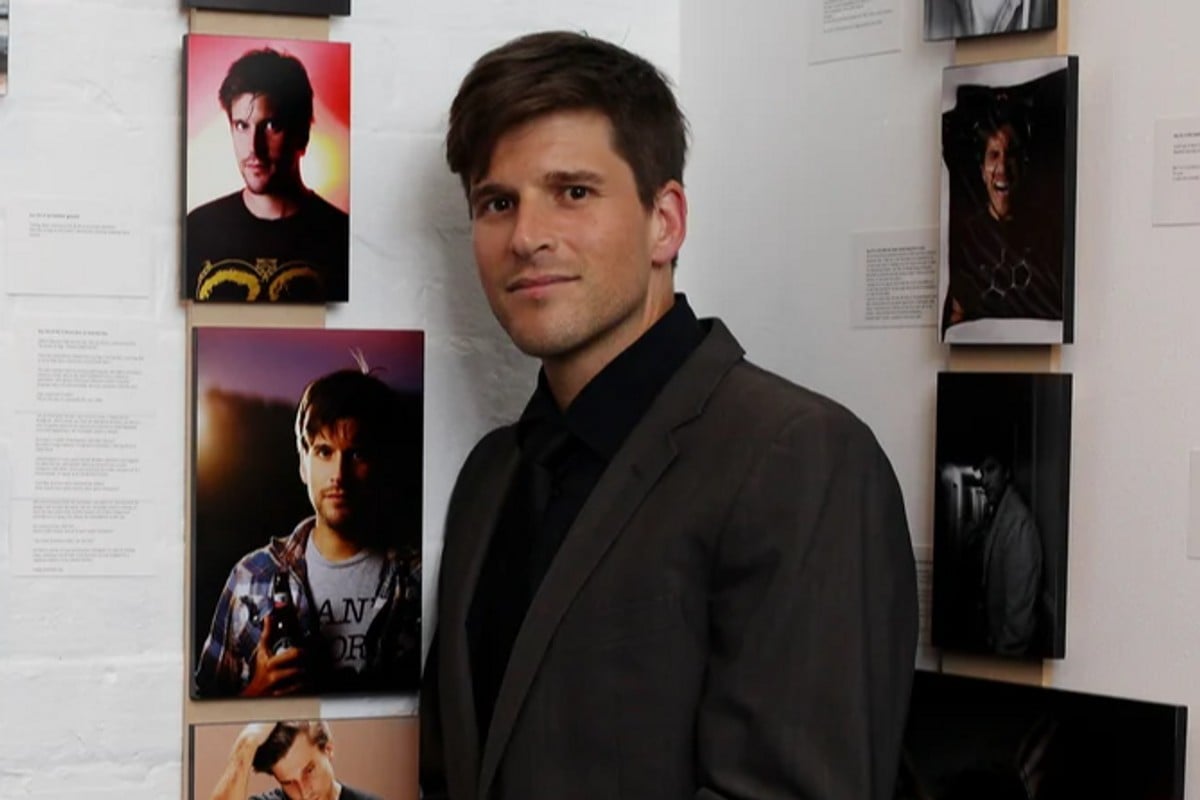
If you want to support independent women's media, become a Mamamia subscriber. Get an all-access pass to everything we make, including exclusive podcasts, articles, videos and our exercise app, MOVE.
Osher Günsberg is a household name in Australia. He's the face of The Bachelor, The Bachelorette, The Masked Singer and Australian Idol.
He's been on our screens for more than two decades. But behind the cameras, he's faced his own struggles.
The financial pressures of a changing industry. The mental health journey that almost cost him his life. And the toughest yet most rewarding role of all — step-fatherhood.
Listen to Osher's chat on Mamamia's No Filter. Post continues below.
It was 2013, and Osher had just got divorced. The television host was "paying rent out of [his] savings" in Los Angeles when he got a call that changed his life.
"I was creating TV formats, and I'm pitching down in Australia, and I was in pre-production for this dating show, and then the network said, 'Hey, I know you're here doing pre-production on this dating show, but we just bought another dating show'," he told Kate Langbroek on Mamamia's No Filter.
"'It's called The Bachelor. Would you want to host that?' Yes, I would.
"So I was out here by myself, back in Australia, kind of single and sober for the first time, trying to figure it out."
Struggling with his mental health, he started his podcast Better Than Yesterday, a weekly show where he discusses his journey while interviewing high-profile guests.
"I wasn't hearing the kind of common conversations I needed to hear, which was that other people also had similar struggles, and other people found ways to overcome them," he said.
This message, helping make today better than yesterday, is the philosophy Osher takes to all his projects.
"I do a lot of jobs to keep my mortgage paid these days," Osher said.
"There's a throughline to all of them. And I think the one job that I think I do better than everything… is I try to make people feel less alone."
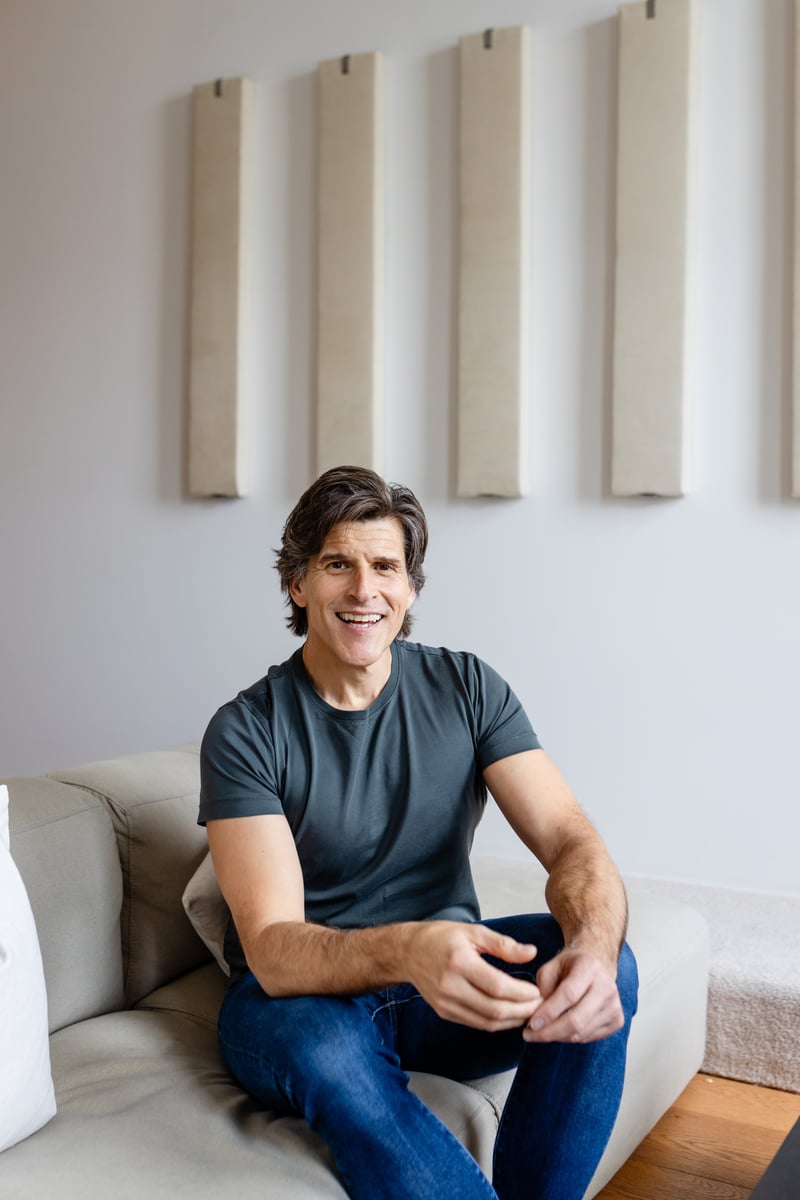 Osher Günsberg is a household name in Australia. Image: Kathryn Tollerud.
Osher Günsberg is a household name in Australia. Image: Kathryn Tollerud.
The end of job security in television.
As a prime-time TV host, people might assume Osher lives lavishly. That's not the case.
"I'm the same as anybody… you get the mortgage that you think, 'Yeah, we could do that'," he said.
"I had four prime TV shows on the mortgage form for the house I live in. None of those shows exist now, but we're still here because I have had to be very innovative about what it is I'm trying to do here."
The industry has changed dramatically since he started 26 years ago.
"The days of, 'Oh, you got a job in television, so now you are set for life' that have not existed since the 80s," he said.
While focused on being the best husband, father and host he could be, the business landscape shifted beneath his feet.
"I was so busy trying to be the healthiest I could be, the best husband I could be, the best dad, stepdad, that I could be… to look up and notice things like share prices and ratings and viewership across the board," he said.
"But I, lately, understood that, oh, crikey. If the ad revenue is not coming in, then the production budget is not justified."
Beyond personal challenges, Osher sees a cultural crisis in the Australian media.
"We're about to have this gigantic loss of knowledge in our storytelling industries — radio, television, film — that we're not going to get back," he said.
"We don't wear high vis, so we don't matter, and that sucks. But when it's gone, we're not gonna be able to get it back."
At 50-something, he's embracing what he calls "four wonderful words": So what? Now what? — the title of his upcoming book about getting unstuck.
"I can be upset about it," he said. "Or I could do something about it.
"It is through that action that the clues and the spontaneity and the serendipity that bring the next opportunity arise."
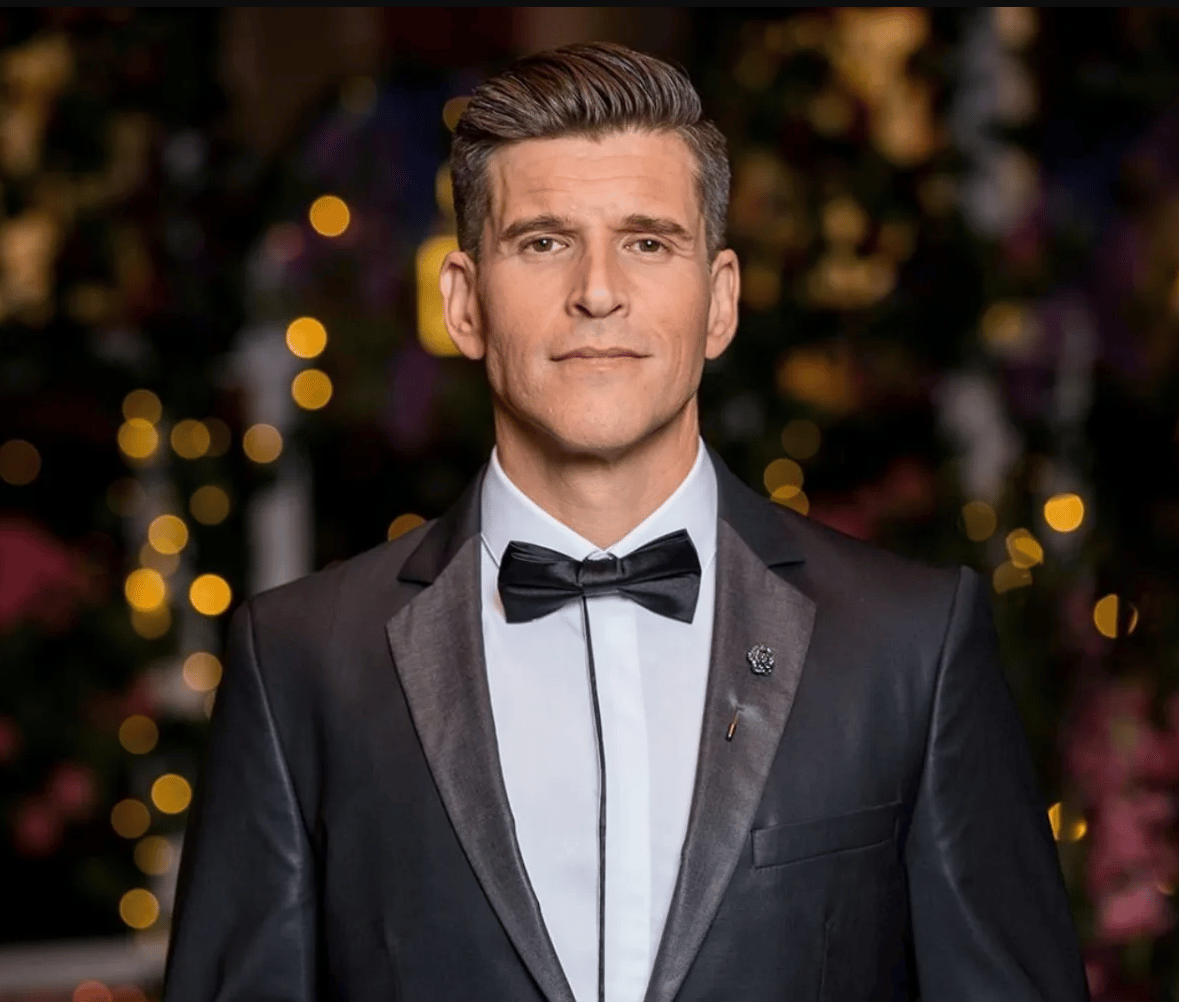 Osher on The Bachelor. Image: Channel 10.
Osher on The Bachelor. Image: Channel 10.
An ongoing mental health journey.
Osher's ability to find positives hasn't always come easily. When he lost two jobs in one day, his mentor, David, offered an unexpected perspective.
"You can look at it like everything sucks and my life is terrible. Or you can look at it as, okay, now I can make anything happen here. Both those things can be true. We get to choose which one."
That philosophy led Osher to cognitive behavioural therapy, which became a crucial tool in managing his mental health.
"It's very much learning how to observe your thoughts and feelings," he said. "Understand that they might not necessarily be right."
Mental health is never smooth. Ten weeks before his wife Audrey was due to give birth to their son Wolfie, his mental health deteriorated.
"She just took one look at me and says, 'I need you to go back to your psychiatrist, get back on meds. You've got to be around because you're getting bad'," Osher recalled.
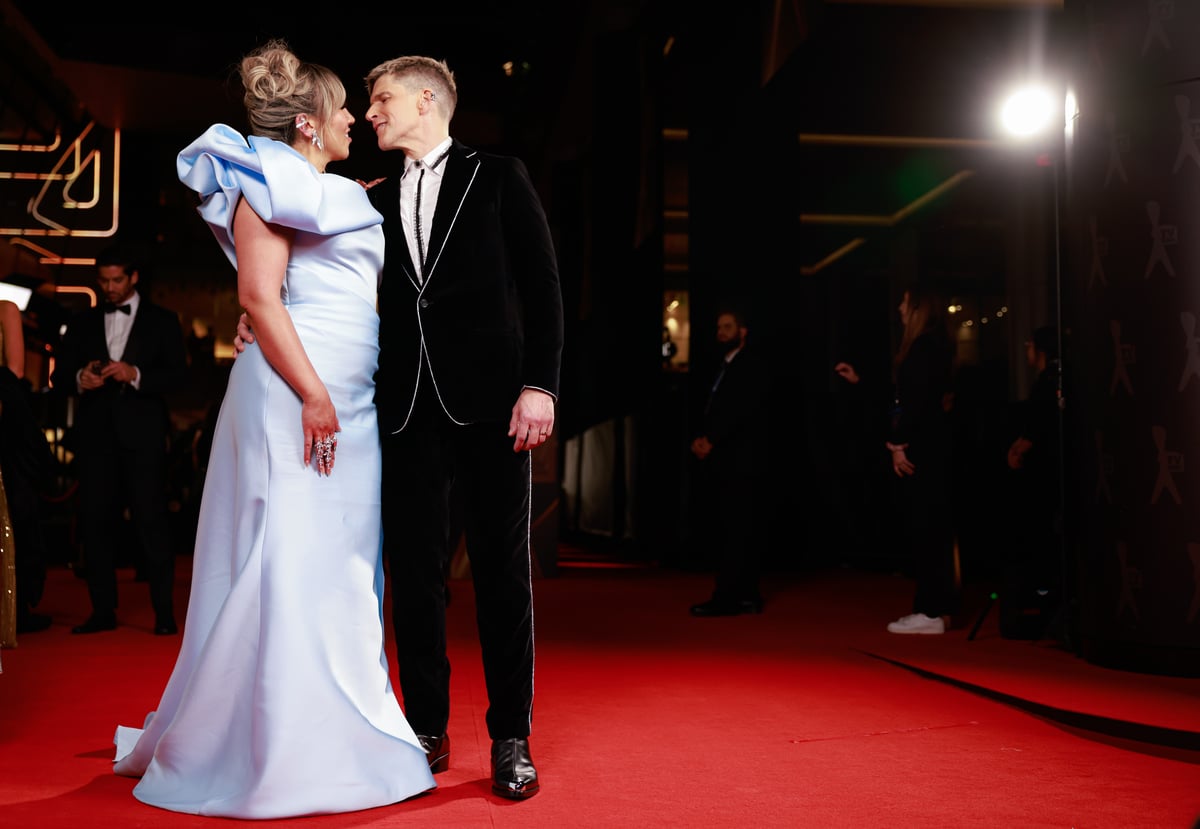 Audrey and Osher at the 63rd TV WEEK Logie Awards in 2023. Image: Getty.
Audrey and Osher at the 63rd TV WEEK Logie Awards in 2023. Image: Getty.
Getting back on medication wasn't simple. When it didn't improve, he feared returning to heavy antipsychotics.
"They're great, because you're not crazy, but you put on a lot of weight because they mess with your insulin response, and your testosterone goes out the window, and the world feels like blue tack," he said.
"It's nice because you're not dealing with suicidal ideation all day. But after a while it gets a bit like, is this it?'
Instead, he found exposure therapy, learning to hold uncomfortable thoughts while experiencing joy.
"I can hold them in one hand and also be with the joy and giggling of my son seeing a Rainbow lorikeet for the first time," he said.
"We have the capacity to hold joy and sadness at the same time."
Love, family and step-fatherhood.
Audrey has been a constant in his life since they met on the set of The Bachelor in 2014, but Osher is honest about how his mental health affects their relationship.
"It sucks to know that sometimes I cause pain to my wife and my family because of a physiological thing that's going on between my ears," he said. "But being aware of it… and taking action about it is all I can do."
When he entered Audrey's world, her daughter Georgia was 10. They've since welcomed Wolfie, but step-parenting is his biggest challenge.
"You love the kid just as much. You dedicate your life to them just as much," he said.
"Her dad's amazing, he's an amazing guy. I love him. And he's her dad, and I'm never going to be that.
"And I never wanted to, and I never tried to be. Though there is this thing inside you that's like, 'There's a bit missing'. And it's tough, but it doesn't stop the reason that you want to do it."
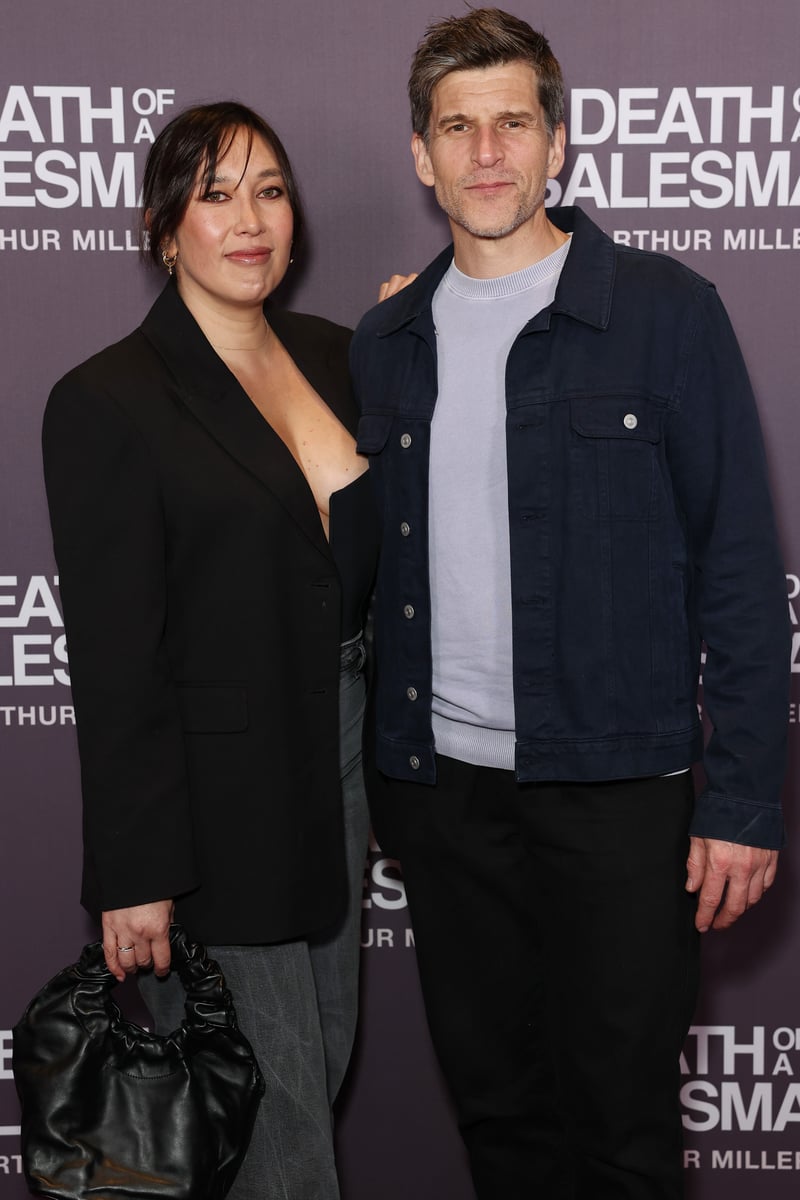 Osher credits Audrey with saving his life. Image: Getty.
Osher credits Audrey with saving his life. Image: Getty.
When Kate asked where he'd be without therapy and sobriety, his answer was stark.
"I would be dead. There's no question," he said.
He credits much of his survival to Audrey.
"When I was really bad, she looked at me, and she saw me, and she saw my sick brain as two separate things. That was very, very lucky," he said.
"I'm so grateful for Audrey's kindness and care and self-reflection and willingness to work on this."
Osher is refreshingly honest about the work required to maintain a marriage, especially when mental health is involved.
"A mate of mine said, mate, 'There's no such thing as the one. There's just the one who wants to work on it with you,' and that's it. And Audrey wants to work on this. Sometimes it's sh** f***ing hard, man.
"Anyone that tries to tell you that marriage is not a participation sport is lying to you."
For his children, his goals are simple: teaching kindness, courage and self-compassion.
"If I can help these two wonderful, incredibly wonderful people be a positive contribution and a positive addition to the community we live in, then that's everything," he said.
On happiness, Osher's perspective reflected his journey.
"Happiness is not a destination, nor is happiness at all something that lasts," he said.
"Happiness is something that we must work at. Happiness is something that is never permanent, and happiness can only exist when we have sadness. Everything oscillates, and we have to be okay with that."
And maybe those are words we can all live by.
Feature image: Getty.
Calling all Australians aged 18+! Complete our short survey on kitchen appliances for a chance to win a $1,000 gift voucher in our quarterly draw!





























































































